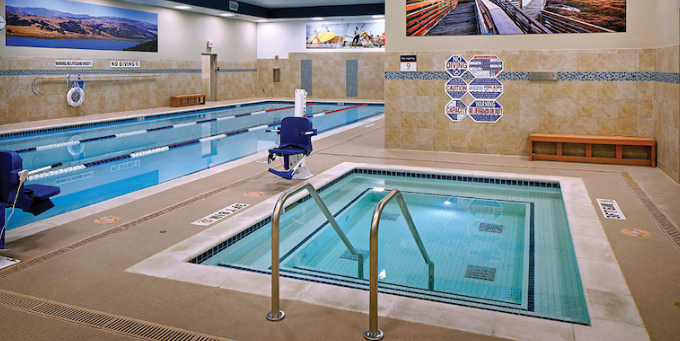Regular sauna use has been associated with a decreased risk of dementia, especially in Finnish studies. By lowering inflammation, increasing blood flow to the brain, and strengthening cardiovascular function, saunas may be beneficial to brain health. These outcomes may lessen a few dementia risk factors.
Including sauna sessions in a wellness routine may help maintain mental well-being. There is a new instance of dementia every three seconds, making it a rising public health concern. As per the report of Alzheimer’s Disease International (ADI), the global population with dementia was estimated to be approximately 55 million in 2020.
It is expected that this figure will increase to 78 million by 2030 and 139 million by 2050. Finding strategies to stop or postpone dementia’s onset is more important than ever given its fast rise. Sauna treatment is one new field of study that shows potential for treating dementia symptoms.
Table of Contents
Sauna Effects on the Brain: A Scientific Study
Although saunas are widely used for relaxation, their benefits for brain health go beyond reducing stress. The effects of spa sessions on the brain through heating, neurochemical release, and bodily responses are revealed by recent research:
- Heating a Sauna: The heat from the sauna causes the body to produce proteins called heat shock proteins (HSPs), which support cellular durability and repair. This could affect how neurological diseases like Alzheimer’s are treated.
- Increasing Blood Flow to the Brain: The heat-induced expansion of blood vessels in baths results in an increase in blood flow to the brain. This enhances the transport of nutrients and oxygen, both of which are necessary for brain function.
- Releasing Brain Chemicals, Including Endorphins: The warmth of a hammam encourages the body to produce endorphins, which are organic substances that lower stress and enhance feelings of happiness. One of the social and emotional advantages of sauna sessions is this neurochemical reaction.
What Is Dementia?

The Alzheimer’s Association makes it clear that dementia is a general term for serious mental decline that interferes with day-to-day functioning rather than a specific disease. The progressive loss of brain nerve cells that results in dementia impairs brain function, which affects memory, thinking, behavior, and day-to-day activities.
Even though dementia primarily affects the elderly, it is not a normal part of aging. Dementia can arise as a result of several conditions, such as strokes, high blood pressure, excessive cholesterol, high blood sugar, and brain injuries.
Types of Dementia
A few of the most prevalent kinds of dementia are as follows:
- Alzheimer’s disease: Making up 60–80% of cases, Alzheimer’s disease is the most common type of dementia. It is characterized by a buildup of amyloid plaques in the brain.
- Vascular Dementia: This form usually follows a stroke and is caused by brain blood transmission blockages and microscopic bleeding.
- Lewy body dementia: Defined by atypical protein aggregates, or Lewy bodies, inside nerve cells, this variety impairs mobility and may result in shifts in attentiveness, ending in periods of daytime sleepiness and rigidity.
- Frontotemporal dementia: This affects the brain’s frontal and temporal lobes, dramatically changing a person’s behavior, personality, and language abilities.
- Mixed dementia: A person diagnosed with mixed dementia reflects changes from many dementia kinds and presents with symptoms of more than one dementia type at the same time.
Dementia symptoms and Signs
Although the symptoms and signs of dementia might vary greatly, some typical indications are as follows:
- Memory loss: Especially in the near term, as seen by forgetting meetings or recent events.
- Communication issues: Communication issues include trouble understanding words, speaking, or keeping up with conversations.
- Reasoning and judgment problems: difficulties in formulating plans, coming up with decisions, or managing difficult assignments.
- Problems with eye perception: Difficulty identifying familiar locations or with a sense of place.
- Mood and Behaviour Changes: Personality changes, mood swings, anxiety, depression, or heightened irritability.
Although the majority of dementias are now incurable, therapies like medication, dietary changes, and brain stimulation can help control their symptoms.
Using a Sauna to Treat Dementia

Sauna sessions should be handled carefully and patiently for your loved ones, as dementia necessitates a caring approach:
- Establish a regular schedule of appointment days and hours to promote familiarity and lower anxiety.
- Offer lots of water before and after each thermal session to ensure proper hydration.
- Beginners should begin with brief sessions (5–10 minutes) in comfortable conditions and work their way up to longer sessions as comfort allows.
- By elevating mood and improving mental clarity, music might improve the experience. Try playing calming binaural rhythms or gentle, well-known songs.
- Your loved one should never be left alone in a sauna; you should always keep an eye on them. Have a carer or partner nearby to help out as needed.
- Keep a careful eye on your body temperature to avoid overheating, especially if you are someone who might not express discomfort.
- Keep an eye out for any discomfort indicators, including dizziness or anxiety, and end the session right away if necessary.
- Move to a more comfortable, cooler spot after sauna time to avoid unexpected decreases in blood pressure.
Dementia vs Alzheimer’s
Alzheimer’s disease and demenAlzheimer’s disease and dementia are two different but related terms:
- Dementia: The term “dementia” refers to a broad range of symptoms that impair mental abilities like remembering, thinking, and reasoning. It makes it harder for someone to carry out daily tasks on their own. Multiple disorders that harm brain cells result in dementia.
- Alzheimer’s disease: 60–80% of instances of dementia are caused by this disease. This chronic brain condition gradually decreases memory and mental abilities, ultimately making it difficult to do basic tasks. Tau tangles and amyloid plaques, two unstable protein accumulations that impair brain function, are linked to Alzheimer’s disease.
Examining Saunas

Since ancient times, saunas have been valued in many cultures as safe havens for rest, social interaction, and health advantages. My sunasusa provides two primary varieties:
- Traditional Saunas: Traditionally built in Finland, saunas are made of sturdy wood like hemlock or cedar and have rock-topped electric or wood-burning stoves. These saunas have low humidity levels (5%–10%) and reach a steamy temperature of 150–195 degrees Fahrenheit. The hot rocks’ humidity is momentarily raised by adding water to them. Traditional saunas, which can be identified by their dry heat, are said to improve immune system performance, lessen the risk of heart attacks, and ease anxiety in addition to improving liver health.
- Infrared Saunas: Outfitted with low-EMF infrared bulbs, like the La Familia model by Golden Designs, these saunas radiate electromagnetic waves that cause the body to heat up immediately. They provide deep heat that is perfect for healing muscles, relieving pain from arthritis and backaches, and treating skin disorders like eczema and acne. They operate at lower temperatures, between 110 and 135 degrees Fahrenheit. In addition to improving sleep quality, infrared saunas are known to help with detoxification and to suit people with respiratory sensitivities like hay fever or asthma.
Sauna Benefits for Brain Health

Frequent sauna use has several benefits for brain health that are verified by studies and research, showing that it improves mental abilities and slows down the aging process of the brain. It’s crucial to recognize the difference between dementia and Alzheimer’s disease, which involve serious and gradual deterioration that affects everyday living and independence, and normal age-related loss in memory, which differs throughout individuals. Sauna therapy is becoming recognized as a viable approach to lower the risk of various illnesses and improve mental health in general.
Saunas’ Beneficial Effects on Memory
Memory loss is the inability to recollect details of events or knowledge; it can happen at any stage of life. Together with moderate amnesia and memory lapses, it’s commonly seen as a typical aspect of aging. Nonetheless, leading a brain-healthy lifestyle may improve memory function. The growth, development, and preservation of brain cells—which affect memory—are greatly dependent upon brain-derived neurotrophic factor, or BDNF.
Memory and cognitive performance can be improved by doing activities that increase the release of BDNF, such as running, eating a diet high in omega-3 fatty acids, and getting enough sleep. Exercising alone may not be enough to promote the development of new cells; researchers have discovered that sauna use increases brain BDNF expression.
Could sauna use lower the risk of Alzheimer’s disease?
According to research, using a sauna may help lower the risk of Alzheimer’s disease because of its positive effects on circulation, heart health, and other physiological reactions. Research, like the Kuopio Ischemic Heart Disease Risk Factor Study (KIHD) conducted in Finland, has demonstrated a major decrease in the likelihood of dementia and Alzheimer’s disease in individuals who use saunas frequently.
In addition to encouraging relaxation and heat shock protein and brain-derived neurotrophic factor (BDNF) production, sauna therapy is thought to improve circulatory health and maybe reduce the incidence of Alzheimer’s disease. Though encouraging, additional study is required to completely comprehend the precise processes and long-term impacts of jacuzzi use on the avoidance of Alzheimer’s disease.
Does Dementia Relieve with a Sauna?

People who are worried about dementia may benefit from using saunas. Sauna use is associated with a considerable reduction in the risk of dementia (66% lower) and Alzheimer’s disease (65% lower) in Finnish men who used saunas four to seven times a week, as reported by a 2017 study published in Age and Ageing, as opposed to sauna use per week.
Increased blood flow from sauna treatment helps injured tissues receive essential nutrients, which supports brain health. Furthermore, sauna treatment causes the body to produce protein from heat shock, which helps to heal damaged brain tissue and may lower the risk of dementia. It promotes the release of brain-derived neurotrophic factor (BDNF), which keeps neurons alive and increases neural connections—all of which are essential for mental functions including learning, memory, and higher-order thinking.
Sauna bathing may be helpful because dementia frequently results in sadness and anxiety. Sauna-induced whole-body heat triggers the production of endorphins, which are naturally occurring hormones that improve mood, calm anxiety, and lessen depressive symptoms in dementia patients.
Almost Heaven Hillsboro Two-Person Indoor Sauna
A modern masterpiece of sauna design, the Almost Heaven Hill Interior Sauna is perfect for small places like bathrooms or flats. Measuring just 58″W by 39″D by 78″H, it provides a real spa experience without taking up much space. With a powerful Harvia electric heater, the Hill can reach temperatures of up to 195 degrees Fahrenheit, giving deep, absorbing heat that eases tension in the muscles and encourages rest.
Choose from rough fir or rough red cedar, which will impact not just the sauna’s appearance but also its atmosphere and scent. Hillsboro Indoor Sauna’s heater protection reduces the possibility of accidental burns, therefore safety is of the utmost importance. A comfortable bench in the sauna maintains a safe distance from the heater, guaranteeing a relaxing and safe sauna experience.
The Hillsboro lets you add water to the rocks for a classic steam sauna experience, catering to both wet and dry cabin tastes. The temperature in the sauna rises to a pleasant 175–185 degrees Fahrenheit in about an hour, making it ideal for a private session of warmth and well-being.
Regular Sauna Use May Help Prevent Dementia
The term dementia refers to a group of mental illnesses characterized by diminished thinking, loss of memory, and reduced day-to-day functioning. The most common kind of dementia is Alzheimer’s disease; other types include frontotemporal, Lewy body, and vascular dementia Genetic sensitivity, family history, and advanced age are important risk factors.
Age is a substantial risk factor, but lifestyle modifications like consistent exercise and a healthy diet can reduce it. Early risk factor identification and management are essential for avoiding or delaying the onset of dementia. According to the study, men who used saunas up to 7 times a week had a 66% lower risk of dementia than men who used them only once a week.
Sauna and Dementia: Conclusion
In the fight against dementia and memory loss, saunas provide a potential new front. According to research, regular sauna use may lower the risk of dementia. This may be because regular sauna use improves circulation, encourages relaxation, and stimulates positive physiological reactions like the production of protein from heat shock and neurons from the brain (BDNF).
Although more research is required to fully comprehend the mechanisms at work, sauna therapy shows promise as a protective action when used carefully and under medical supervision.







